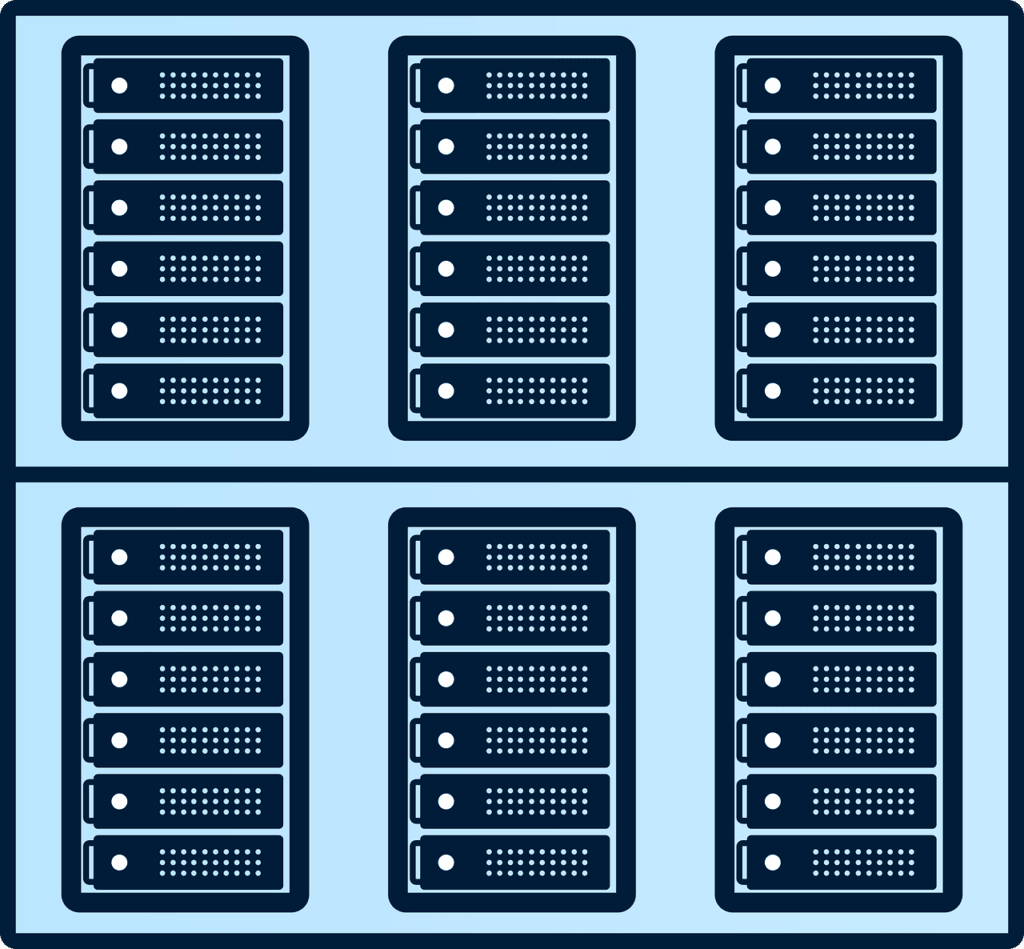Have you ever wondered whether Hostinger or GoDaddy is the right fit for your web hosting needs? Choosing a web host is a critical step in establishing an online presence, whether for a blog, business, or portfolio. With numerous options available, each promising excellent performance, it can be challenging to determine which host matches your specific requirements.

Introduction to Hostinger and GoDaddy
Before diving into the specifics, let’s familiarize ourselves with the two contenders in this web hosting arena. Both Hostinger and GoDaddy have carved out significant positions in the web hosting industry, but they cater to slightly different audiences with unique strengths.
Hostinger Overview
Hostinger is well-known for its affordability and flexibility. Initially established in 2004, Hostinger has expanded rapidly and now hosts over 29 million users worldwide. Its appeal lies in budget-friendly plans, rich features, and tools that cater to a wide range of users—from beginners to businesses.
GoDaddy Overview
GoDaddy, on the other hand, is one of the most recognizable names in the domain and hosting world. Founded in 1997, it hosts over 20 million customers and is known for its robust infrastructure and comprehensive suite of services beyond just hosting, including domain registration and website building tools.
Comparing Features
When assessing Hostinger vs. GoDaddy, it’s essential to dissect their features. Both hosts provide a wide range of functionalities, but how do they stack up against each other?
Hosting Plans
Hostinger Plans
Hostinger shines with its diversity of hosting plans. It offers shared hosting, cloud hosting, WordPress hosting, and VPS hosting. The plans are layered to accommodate various user levels:
- Shared Hosting: Perfect for small websites or those just starting. The single plan offers one website, while the premium plans provide unlimited websites and bandwidth.
- VPS Hosting: Excellent performance and customization options with Hostinger VPS.
- Cloud Hosting: Combines the power of a virtual server with the simplicity of shared hosting.
- WordPress Hosting: Specifically optimized for WordPress sites.
GoDaddy Plans
GoDaddy offers an extensive range of hosting services:
- Shared Hosting: Known for its robust performance and unlimited bandwidth.
- VPS Hosting: Provides dedicated resources for advanced control.
- Dedicated Hosting: Tailored for large-scale websites needing maximum power.
- WordPress Hosting: Tailored solutions that include automatic updates and backups.
Performance Metrics
Performance is a critical factor in hosting evaluation, as it directly impacts user experience and SEO rankings.
Hostinger Performance
Hostinger’s reliability is evidenced by its 99.9% uptime guarantee. The use of LiteSpeed technology improves site performance significantly, offering fast loading speeds acknowledged in Hostinger speed tests.
GoDaddy Performance
GoDaddy also boasts a solid uptime but tends to fall slightly behind in terms of speed when compared to Hostinger. It offers a 99.9% uptime guarantee, which is standard in the hosting industry.
Security Features
Both hosts understand the importance of security but implement their features differently.
Hostinger Security
Hostinger provides impressive security layers, including advanced DDoS protection and automatic backups. Their advanced security setups include SSH access, SSL certificates, and regular updates to protect against threats.
GoDaddy Security
GoDaddy’s security suite includes SSL certificates and backups. However, some features like site backups and malware scanning come at an additional cost, unlike Hostinger’s more inclusive approach.
Customer Support
Customer support can often be a make-or-break feature for users, especially for beginners.
Hostinger Support
Hostinger stands out with its dedicated support team available 24/7 through live chat. The help center hosts extensive tutorials and guides, making it user-friendly for beginners and seasoned developers alike.
GoDaddy Support
GoDaddy also provides 24/7 customer support, including phone support, which can be valuable for some users. However, the immediacy and specialization of support can sometimes fall short compared to Hostinger’s more focused assistance.

Pricing Comparison
Pricing is often a determining factor when selecting a web host. Here’s how Hostinger and GoDaddy compare in terms of value for money.
| Feature | Hostinger | GoDaddy |
|---|---|---|
| Entry-Level Plan | Starts at approx. $1.99/month (Shared Hosting) | Starts at approx. $4.33/month (Shared Hosting) |
| Mid-Range Plan | Premium Shared Hosting around $2.99/month | Deluxe Shared Hosting around $8.99/month |
| VPS Hosting | Starts at around $3.95/month | Starts at around $19.99/month |
| Free Domain | Included with annual plans | Included with annual plans |
| SSL Certificate | Free with all plans | Free with all plans (SSL may need manual setup) |
| Money-Back Guarantee | 30-day money-back guarantee | 30-day money-back guarantee |
Hostinger emerges as a budget-friendly choice, especially for beginners with limited budgets. Its low-cost plans do not skimp on essential features, making it a fantastic option for small to medium businesses.
User Experience
The ease of use and intuitive design of hosting dashboards can significantly affect how users manage their sites.
Hostinger User Experience
Hostinger features a custom-designed hPanel, praised for its user-friendly layout and straightforward navigation. With features like drag-and-drop capabilities and AI website builders, even novices can craft their sites effortlessly.
GoDaddy User Experience
GoDaddy opts for the widely-used cPanel for its hosting interface, providing a degree of familiarity for users with prior hosting experience. However, some new users may find it less intuitive compared to Hostinger’s hPanel design.

Specialized Features and Value Additions
Looking beyond basics, how do Hostinger and GoDaddy add extra value to their offerings?
Hostinger Extras
- Hostinger Web Hosting Tutorials: They offer a variety of tutorials facilitating smoother learning curves for new site owners.
- Hostinger Discounts and Promo Codes: Regular deals and student discounts make the service even more affordable.
- Free Migration: Hassle-free migration service for existing domains or websites at no extra cost.
- Hostinger Cloud Hosting and VPS Performance: Known for high reliability and fast site speeds.
GoDaddy Extras
- Domain Registration Leader: Offers a comprehensive domain marketplace with auctions and professional services.
- GoDaddy Website Builder: An easy way to create a site, though it is a separate purchase from hosting plans.
- Domain Auction Platform: If you’re interested in trading or acquiring premium domains, this feature is a win.
Pros and Cons
To wrap up this comparison, let’s evaluate the pros and cons of each web host.
Hostinger Pros and Cons
Pros:
- Cost-effective plans accommodating a range of needs from personal blogs to small businesses.
- Superior speed and efficiency due to LiteSpeed technology.
- Robust support with a wide range of tutorials and 24/7 live chat.
- Inclusive features like free SSL and domain registration on selected plans.
Cons:
- Lacks phone support; all interactions are via web or chat.
- Some advanced features may seem unnecessary for very simple websites.
GoDaddy Pros and Cons
Pros:
- Well-established brand reputation with a range of additional services.
- Offers phone support as well as comprehensive knowledge resources.
- Powerful domain registration services alongside hosting.
Cons:
- Higher price point for similar features compared to Hostinger.
- Additional costs for some crucial features like backups and security scans.
Conclusion: Making Your Choice
When it comes to choosing between Hostinger and GoDaddy, the decision hinges on your specific needs and priorities. Hostinger is optimal for those who require a budget-friendly approach with stellar support and comprehensive features ideal for small to mid-sized projects. On the other hand, GoDaddy serves users who might prefer a larger platform with extensive domain services and do not mind a slightly higher price for added offerings.
Whether you’re just starting on your web development journey or looking to switch providers, weighing your options by performance, price, and personal preferences will guide you to the best choice for your web hosting needs.



